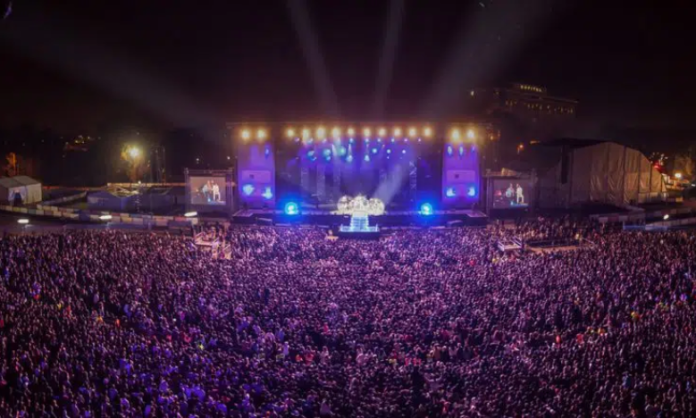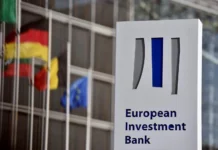The 20th edition of the Mawazine Festival closed in spectacular fashion, wrapping up nine days of non-stop music and celebration that brought over 3.75 million people to the cities of Rabat and Salé. From June 20 to 28, crowds from across Morocco and beyond gathered to experience a rich and diverse lineup featuring more than 100 artists from around the world.
Held under the High Patronage of King Mohammed VI, the festival once again confirmed its status as one of the most significant music events on the global calendar. Much of its widespread appeal stems from its accessible format—most concerts are free—along with an inclusive lineup that spans genres, cultures, and generations. Every evening, the stages filled to capacity, radiating a rare mix of energy, unity, and celebration.
The OLM Souissi stage, which served as the hub for international acts, delivered night after night of sold-out performances. Big-name artists like Kid Cudi, Becky G, aespa, Lil Baby, Wizkid, Afrojack, and Lost Frequencies set the tone, but three shows stood out above the rest: Will Smith, 50 Cent, and ElGrande Toto offered jaw-dropping performances that went far beyond music. With stunning visuals, massive LED screens, intricate choreography, and powerful stagecraft, they turned their sets into full-scale spectacles.
Meanwhile, on the Nahda stage, legendary voices from the Arab world captivated loyal fans. Nancy Ajram, Myriam Fares, Sherine, Ragheb Alama, Hamaki, Aminux, and Boudchart brought the kind of emotional resonance and cultural familiarity that unites generations, transcending borders with every song.
Across the river in Salé, Moroccan artists drew enormous crowds each night. From veterans like Abdelaziz Stati and Najat Aatabou to icons like Hajib, Adil Miloudi, and Samy Ray, the full range of Moroccan popular music was on proud display. Rising stars like Lazaro, Lmorphine, Zakaria Ghafouli, and Kaoutar Berrani also had their moment, earning roaring applause from a packed and passionate audience.
For those seeking a more intimate experience, the Mohammed V National Theater hosted a curated selection of indoor concerts featuring the soulful Michael Kiwanuka, French pop sensation Slimane, Egyptian crooner Tamer Ashour, Tunisian singer Saber Robai, Lebanese artist Ziad Bourji, and Mexican powerhouse Lila Downs. A holographic tribute to Abdelhalim Hafez brought nostalgic wonder to life, while Kadhem Saher and Majida El Roumi delivered emotionally charged performances marked by vocal brilliance and deep artistry.
The Bouregreg stage proved to be a musical melting pot. Global acts like De La Soul, Julian Marley, Salif Keita, Yemi Alade, and Burning Spear took the audience on a cross-continental journey, moving effortlessly from West Africa to Jamaica, the U.S. to the Middle East, each set a vibrant celebration of global sound.
At Chellah, music took a more contemplative turn. Set amid ancient ruins, this unique venue provided a reflective space for performances by Soukaina Fahsi, Egyptian Project, and Gulay Hacer Toruk. Here, stripped-down arrangements and ethereal vocals created an atmosphere perfect for quiet listening and introspection.
This year’s edition also stood out for its expansive media reach. More than 500 journalists were accredited, and the festival’s highlights were widely shared across social media, further cementing Mawazine’s place on the international cultural map.
The festival’s organizer, Maroc Cultures, praised the commitment of the artists, the enthusiasm of the audience, the backing of key partners, and the seamless cooperation of local authorities—whose presence ensured safety and smooth logistics throughout this ambitious and wide-reaching event.
With its 20th anniversary, Mawazine proved once more that it’s far more than a music festival. It’s a cultural phenomenon—an international gathering point that brings people together through music, heritage, and shared emotion, all celebrated on Moroccan soil.





